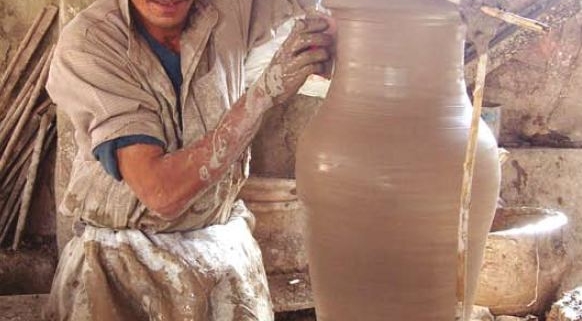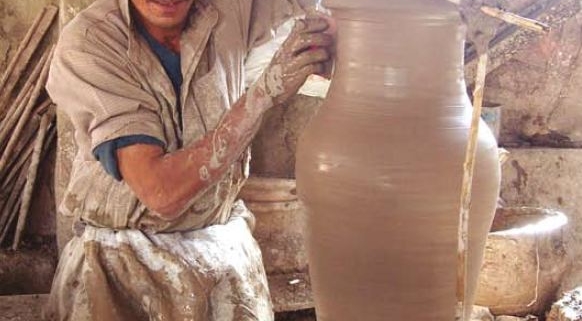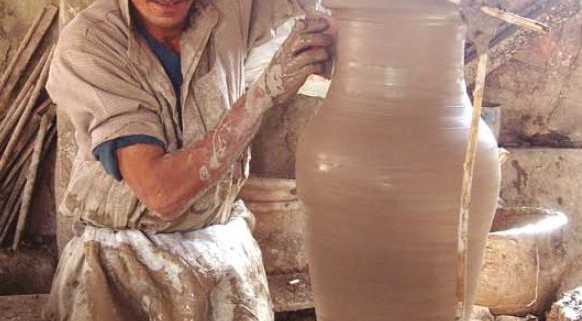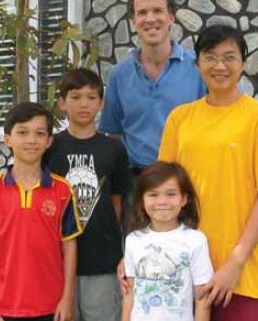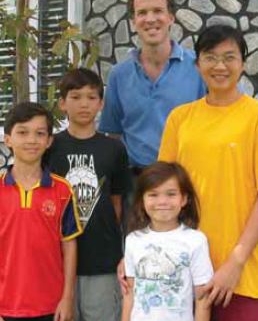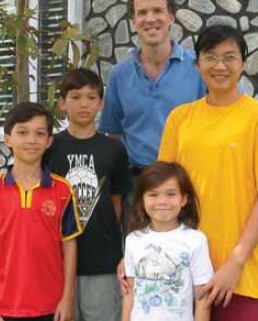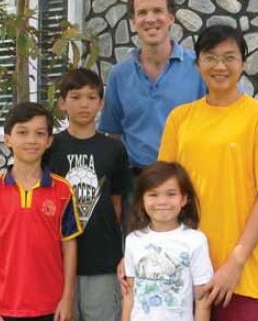For most of the past 10 years my family and I have lived in a part of the world where relatively few people understand what it means to be a follower of Jesus.
When we arrived I had anticipated putting my honours degree and doctorate to good use in some sort of agricultural project which served the poor and gave ample opportunities to live out our faith. Instead I became the world’s most highly qualified pot inspector!
It all began quite innocently really – or was that ignorantly?
Firstly, I knew nothing about the product we were selling (pottery), in fact I didn’t even like it. My only prior exposure had been when my wife dragged me down to the Sunday markets to ‘revel’ in the pottery on sale – a highly evolved form of conjugal torture!
Secondly, I knew nothing about doing business – I was an agricultural scientist, the son of a Marxist. In my family, business was a sleazy alien we stopped at the front door along with the Jehovah’s Witnesses. We were encouraged to pursue honourable professions which would benefit the world (medicine, education – even science). So although I could model ‘heat and water vapour transfer’ I couldn’t distinguish a balance sheet from a shopping docket!
Thirdly, we had no capital – well what do you expect of a Christian socialist!
Despite this trifecta of what might be kindly described as business handicaps, we somehow (or more accurately, God managed) to build a business exporting pottery to Western markets. Along the way we became the leading pottery exporter in that country. We employed about 20 people full-time, up to 30 casual staff, and through our subcontractors generated employment for more than 200 people. We worked in more than 10 different communities across the country and worked with more than 70 different subcontractors (including accessory suppliers and packaging suppliers).
It started very simply – a fellow Christian worker (who was a trader by background) needed someone to help him pack pots. He had figured out that the pottery was cheap and that there was perhaps an export market for it. But if the price was low, the quality was lower, so to control that he inspected every pot he shipped – the trouble was there was only so many hours in the day and when you have to pack 50,000 pots just to fill up one container, that’s a lot of hours.
The solution of course was to bring in the world’s most highly qualified pot inspector (moi!). I knew all those years of studying heat and water transfer through the rhizosphere (even my computer doesn’t know this word) would eventually come in handy! So there I sat, day in day out, surrounded by the grubby poor I had envisaged serving, looking at their cruddy pots and throwing most of them away (not a way to make them love you – let alone admire your walk of faith!).
Occasionally to break the monotony (believe me, inspecting 50,000 pots out in the open, with only dust, sun and smelly potters for company is monotonous), I’d discover they were cheating and slipping my rejects back into the boxes we were shipping. Then I’d get a chance to express my love for them!
Here, strangely enough, is where the trifecta really begins. My tirades of abuse and pot smashing (along with their attempts to cheat me) brought about a real relationship. We needed each other – I had customers to satisfy – they had families to feed – it was a relationship of mutual need – so we couldn’t just walk away – and in the end we had to be reconciled. After all we had a job to do and neither I nor they could stop until the container was done. So over a soft drink they’d illuminate me as to how white lies (which is what apparently this was) were really okay, let alone culturally appropriate. And I’d illuminate them on how regardless of a potter’s theology of truth, our customers were not so culturally ductile! We began to really communicate!
Over the years these people with whom I fought on a daily basis became trusted (not with their pots) and valued friends. In turn we became trusted members of the communities in which we worked. In many ways we (and our staff) became a part of those communities, bought property and were present day in and day out.
From the income generated from our business, new businesses sprung up, other businesses grew. We were able to develop products specifically to generate employment for women and gradually help our suppliers to understand that acting with integrity and building trust were essential to business success and indeed helpful to all forms of human interaction.
We didn’t get everything our way – we still struggled with our subcontractors employing their children rather than sending them to school, we were threatened by local authorities with having buildings demolished if we didn’t pay bribes. There were enough moral dilemmas to keep a Christian socialist wannabe do-gooder busy for the rest of his life!
Ultimately though, we wanted to see people blessed, not just materially or by living ‘better lives’ (important as these things are) – but we wanted them to experience the transformation that can only occur through meeting Jesus, through experiencing God’s forgiveness and being reconciled to our Father and Creator. But the reality is we didn’t see much harvesting though we did lots of sowing.
In our location, as in many of the societies where Interserve works, there is a kind of ‘faith lock-down’ going on. This is at least partly a result of the trauma these communities are going through as they seek to adjust to the impact of globalisation and development. In the midst of turmoil they cling all the more desperately to the one thing that has not changed (or at least they have some hope of not allowing to change) – their faith. Hence our attempts to persuade them to follow Jesus can easily be perceived more as reckless social vandalism than ‘love in action’. That of course is the great challenge in our post-modern/pre-modern world – to live with such integrity that our oral communication of the gospel only explains what our lives already state.
What we have done, we have sought to do as an outworking of the law of love in our lives. The funny thing is that love can be manifested in inspecting 50,000 pots and rejecting more than half of them – it really can. Because the story of love in this context is about telling the truth in love (being real) – that’s what the gospel is all about I think. About the truth of our circumstances today, tomorrow and in eternity. But it can’t start if you’re not there – sitting in the dust and heat, surrounded by smelly people who begin by thinking that the aim of the game is to pull a quick one over you. It’s a wobbly start, but then that’s life all over!
The author has lived with his family in the Middle East, where he pioneered a successful business. They recently relocated to another BAM project in South Asia; they are currently preparing through a year of intensive language and culture study.

